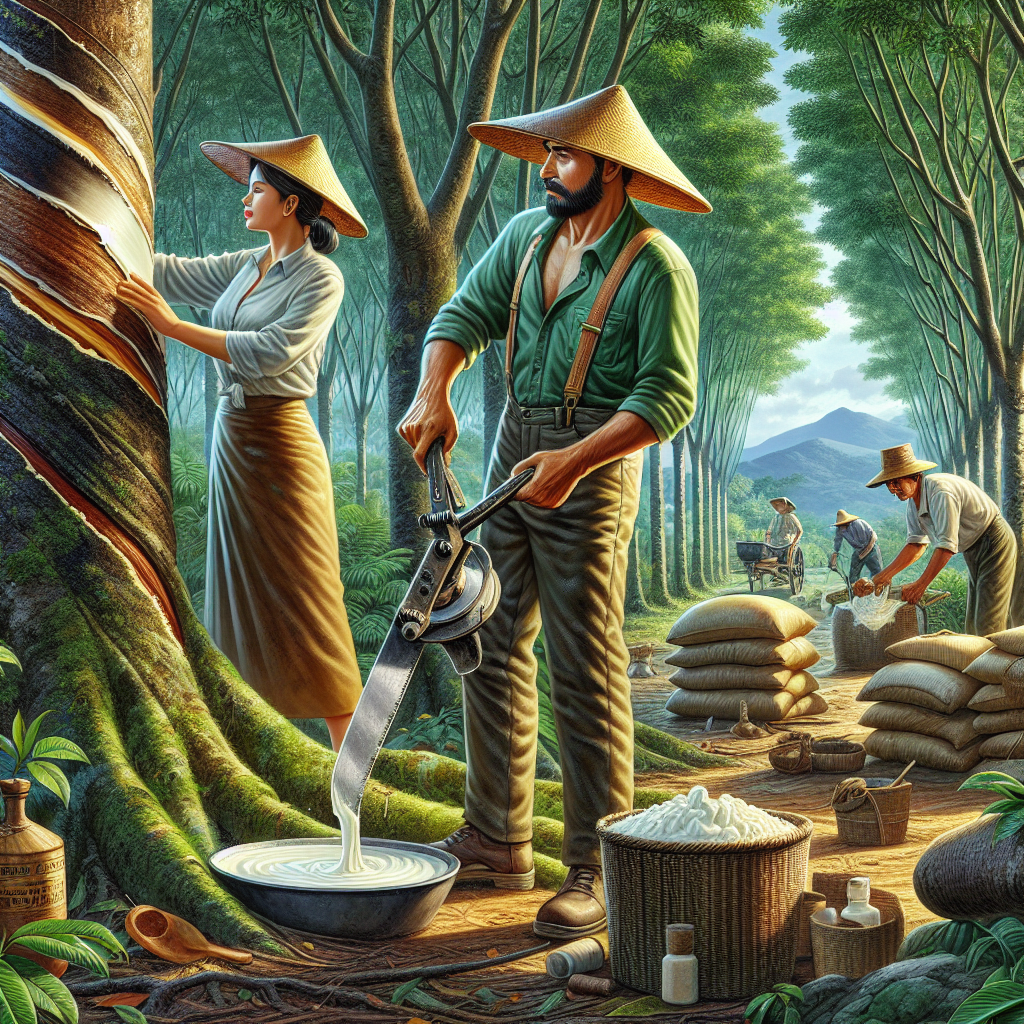ILO and Canada Launch $ Multi-Year Project to Strengthen Labour Rights in Thailand’s Rubber Industry
At the launch event, Samart Pattamasukhon, Deputy Permanent Secretary of the Ministry of Labour, underscored Thailand’s commitment to the tripartite system of cooperation among government, employers, and workers.

- Country:
- Thailand
The International Labour Organization (ILO), with funding from the Government of Canada, has launched a three-year initiative aimed at strengthening labour rights, improving working conditions, and boosting competitiveness in Thailand’s rubber sector—a key pillar of the nation’s economy and a major player in global supply chains.
The project, titled “Strengthening Fundamental Principles and Rights at Work and Trade Readiness in Thailand,” was officially inaugurated on 10 October 2025 at a ceremony that brought together representatives from Thailand’s Ministry of Labour, employers’ and workers’ organizations, as well as officials from the Government of Canada and the ILO.
Promoting Labour Rights and Fair Trade
The initiative seeks to bring Thailand’s labour framework in closer alignment with international labour standards, which is becoming increasingly essential in the context of Free Trade Agreements (FTAs) and the growing demand for responsible global supply chains. The rubber sector—Thailand’s largest agricultural export industry—serves as a focal point for demonstrating how fair, safe, and equitable labour practices can drive competitiveness in world markets.
The project will emphasize core labour rights such as freedom of association, the right to collective bargaining, elimination of forced and child labour, and the promotion of workplace safety and health. It will also focus on improving social dialogue among employers, workers, and the government while providing training, legal reforms, and awareness programs to strengthen institutional capacity.
Building Decent Work Through Social Dialogue
At the launch event, Samart Pattamasukhon, Deputy Permanent Secretary of the Ministry of Labour, underscored Thailand’s commitment to the tripartite system of cooperation among government, employers, and workers.
“This project will serve as a vital instrument in strengthening fundamental rights for workers and enhancing Thailand’s trade competitiveness through the creation of decent work in the rubber supply chain,” he said. “Treating workers fairly boosts productivity, fosters better workplace relationships, and elevates Thai products’ competitiveness globally.”
He emphasized that the project reflects Thailand’s determination to maintain labour protection standards while positioning itself as a leader in ethical trade practices.
Canada’s Commitment to Inclusive Growth
Canada, a strong advocate of labour rights and inclusive trade, is providing financial and technical backing for the project through its international development program.
“Workers do more than contribute to our economies—they drive progress, support families, and strengthen communities,” said Patty Hajdu, Canada’s Minister of Jobs and Families. “That’s why Canada is working with Thailand and partners through this initiative to protect rights, uphold international labour standards, and build a future where all workers have a fair chance to succeed.”
John Zerucelli, Canada’s Secretary of State for Labour, added that promoting fair and safe work environments abroad also aligns with Canada’s broader commitment to ethical trade and sustainable global development.
“Labour rights are fundamental human rights. By supporting our trading partners like Thailand, we’re helping ensure fair, safe, and equitable workplaces that benefit everyone,” he stated.
Collaboration Across Sectors
Employer and worker organizations in Thailand also voiced strong support for the initiative. Siriwan Romchatthong, Secretary-General of the Employers’ Confederation of Thailand (ECOT), highlighted that responsible business practices and constructive social dialogue are not only moral imperatives but also strategic drivers of competitiveness.
“By partnering with government, workers, and international allies, employers can build resilient supply chains that deliver long-term value for businesses and decent work for workers,” she said.
Meanwhile, Tavee Deeying, Secretary-General of the International Trade Union Confederation – Thailand Council (ITUC-TC), stressed the importance of empowering workers’ voices.
“Meaningful social dialogue and respect for the rights to organize and bargain collectively are essential to ensuring that economic growth leads to shared prosperity for all working people,” he noted.
ILO’s Regional Perspective
Xiaoyan Qian, ILO Director for Thailand, Cambodia, and Lao PDR, emphasized that the project embodies the principle of inclusive and effective social dialogue—a cornerstone of the ILO’s Decent Work Agenda.
“By bringing together government, employers, and workers, we can develop practical, on-the-ground solutions that not only protect workers’ rights but also enhance Thailand’s competitiveness in global markets,” Qian said.
A Global Industry with National Impact
Thailand is the world’s largest producer and exporter of natural rubber, accounting for nearly one-third of global output. The sector supports over six million people, from smallholder farmers in the southern provinces to workers in factories producing tyres, gloves, and industrial goods. In 2024, Thailand’s rubber and rubber product exports were valued at US$19.22 billion, according to the Ministry of Commerce.
Given the industry’s economic and social importance, improving labour standards is crucial not only for protecting workers but also for ensuring the sustainability and global reputation of Thailand’s supply chains.
Toward a Fairer and More Competitive Future
The ILO-Canada partnership marks a pivotal step toward aligning Thailand’s trade and labour policies with international norms. By promoting decent work, responsible business conduct, and inclusive social dialogue, the initiative is expected to strengthen Thailand’s capacity to meet global trade standards while ensuring that economic progress benefits workers, employers, and communities alike.
Through this project, Thailand aims to show that fair treatment of workers is not a cost—but an investment in sustainable growth and competitiveness.
ALSO READ
Ganja Supply Chain Busted: Arrests of Two Men Reveal Shocking Details
Ukraine Intensifies Strikes on Russian Military Supply Chains
We decided to establish Industry Guild and Supply Chain Observatory for cooperation on critical minerals: PM Modi after talks with Starmer.
Namibia Advances Decent Work and Responsible Business in Trade and Investment
China Tightens Grip on Rare Earth Exports, Impacting Global Supply Chains










